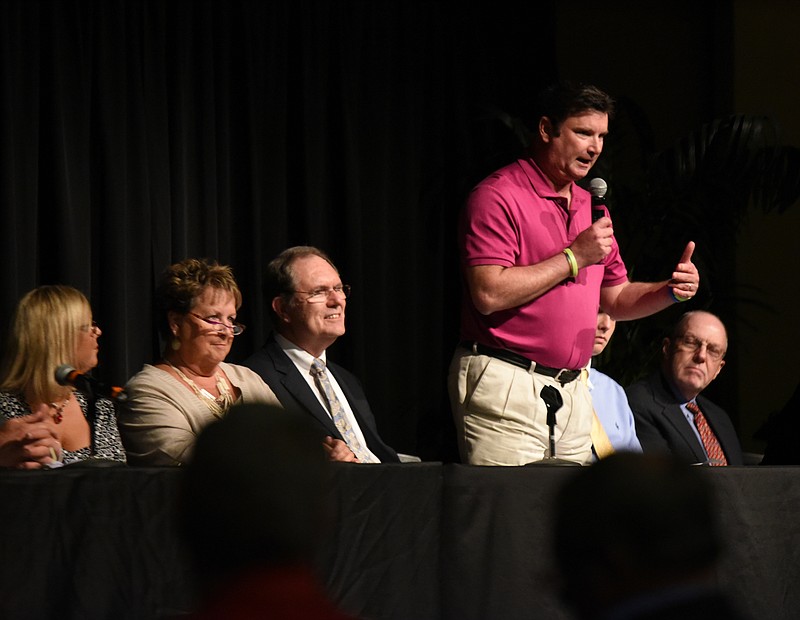At at least one recent community meeting to explain Chattanooga 2.0 and glean feedback from parents, residents and business people, there was an inordinate amount of talk about lack of "parental involvement" as the problem and more parent involvement as a primary fix.
It was code for blaming students and their parents for our schools' bad outcomes.
And it was wholly disingenuous - sounding all too much like the equivalent of the-dog-ate-my-homework excuse.
One community member stood to challenge the wagging fingers of educators on the all-white panel assembled by District 7 Hamilton County Commissioner Sabrena Smedley.
"Parents are the ones who get up every morning to get their students ready for school. Parents are the ones who walk their children to school," he said. "It's time to stop hurting people's feelings" as you pass the blame, he said.
He's absolutely right.
It's unfortunate that not all of our children have two parents, or enough food to eat, or someone to read to them, or someone at home who can help them with algebra. But those facts don't let our teachers, principals, schools and community off the hook.
Teachers teach. And they have to teach the children in front of them - no matter the youngsters' talents, no matter their family makeup or financial status and no matter their academic preparedness.
It's time for us as a community to stop blaming dysfunctional families and poverty and race and anything else we want to throw out there for our failures in educating our children well enough to get jobs.
That's the issue now in front of us. Hamilton County employers can hire only about 56 percent of our county residents: Our young people come to them lacking the educational credentials and work skills for even the blue-collar jobs offered. Our high school graduates come to them unable to use a computer keyboard to fill out an application. They come to them unable to reason that they shouldn't turn down a $30,000-plus-a-year entry-level job at VW two weeks out of high school because they don't understand the rules that require them to put their cellphone in a locker for their eight-hour shift.
This is not to say that parents are not a child's first and best teachers. Early childhood development is key. And that's as easy as talking and reading with infants and toddlers. Fewer than half of children entering kindergarten are "ready to learn." In other words, they lack the verbal skills to interact with learning. Children who have been read to from an early age come to school with 7,000 words in their vocabularies, while children who are not read to come to school with about 500 words. But today, in single-parent and two-job families, not all parents can manage the time-intensive baby work. And just 43 percent of 3- and 4-year-olds are enrolled in early childhood learning programs in Hamilton County.
So teachers and this community - this village, if you will - have to pick up the slack.
Two panel members, Hamilton County's former state representative Ken Meyer and Keith Dressler, an orthodontist and entrepreneur/owner of four small businesses, offered two sterling comments.
"We have to meet these kids where they are," Meyer said.
"How do we leverage the technology in this?" he said, holding up his cellphone. "We need to think outside the box. We need bold leadership. We need to challenge more and set high expectations. And it's not just about spending more, it's about how we spend."
Dressler followed up: "We don't have functional homes anymore. We've been bold with our riverfront. Why can't we be bold with our schools?"
And, yes, Dressler said, we need to fund schools better.
"And what works at Signal Mountain may not work at schools downtown," so we shouldn't be hesitant to work on a funding redistribution plan, he added.
Conversations like this about our schools may not be easy. But they are necessary. And revealing.
